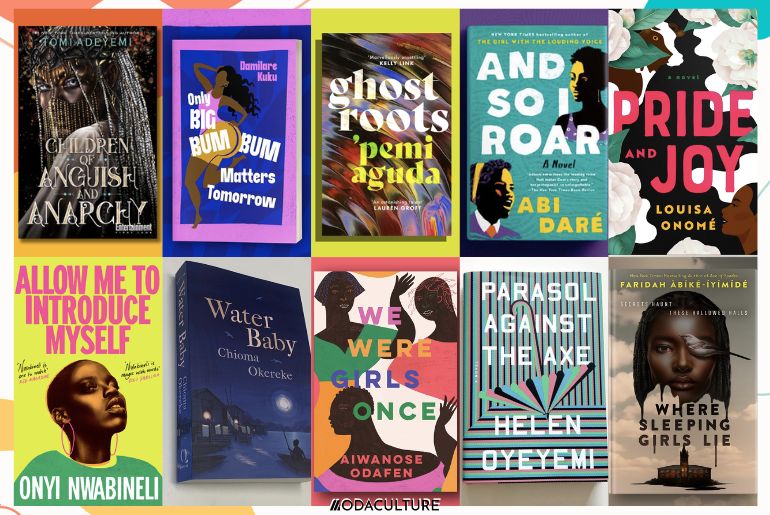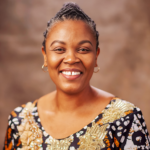In a small, perpetually hot town, a girl lies curled up on her bed, engrossed in the words of Aiwanose Odafen in “Tomorrow I Become a Woman.” As she delves into the narrative of Obianuju, she often murmurs in agreement, reacting to the various issues the book addresses. Upon finishing, she turns to her roommate, exclaiming, “People are going through a lot!” This scene is emblematic of the growing awareness and dialogue about mental health issues in Nigeria, driven in part by contemporary Nigerian writers who tackle these subjects head-on through storytelling.
From primary school, generations of Nigerians have been introduced to the works of Chinua Achebe, Wole Soyinka, Buchi Emecheta, and other first-generation writers who critiqued colonialism, independence, and corruption. These authors not only brought Nigeria to global prominence but also established it as a literary giant in Africa.
Today’s writers continue this legacy, addressing the urgent issues of their time, particularly mental health and challenging entrenched stereotypes.
In many Nigerian homes, topics like finances, sexual relations, trauma, and mental health often lead to uncomfortable silences. In a country with a strong religious foundation, these issues are more likely to be entrusted to divine intervention than openly discussed. This avoidance, coupled with pervasive stereotypes about various societal groups, creates a communication-averse society resistant to change.
Contemporary Nigerian writers like Chimamanda Ngozi Adichie and Aiwanose Odafen are addressing these challenges in their works. For instance, in “Americanah,” Adichie’s characters defy one-dimensional portrayals of Nigerians, both in the Western media and within Nigeria itself. The protagonist, Ifemelu, navigates identity and race in the U.S., challenging the notion that Nigerians are defined by corruption, poverty, or violence. Similarly, Lola Shoneyin’s “The Secret Lives of Baba Segi’s Wives” deconstructs stereotypes about gender roles and polygamy, portraying Nigerian women as complex individuals with their own desires and agency.
Books like “Tomorrow I Become a Woman” and “Nearly All The Men in Lagos are Mad” further challenge societal norms and bring mental health issues to the forefront. Akwaeke Emezi’s “Freshwater” is a groundbreaking work that blends spiritual possession and mental illness, reflecting the complexity of trauma and mental health in Nigerian culture. By addressing these issues, Emezi encourages readers to reconsider harmful stigmas that prevent individuals from seeking proper care.
Other writers, such as Chigozie Obioma in “The Fishermen,” explore the intersection of mental health, superstition, and familial breakdown, highlighting the effects of untreated trauma. Oyinkan Braithwaite’s “My Sister, the Serial Killer” touches on mental health through the lens of societal pressures and patriarchal norms.
The narratives crafted by these authors are not just fiction; they reflect a broader cultural shift in how Nigerians, particularly the younger generation, discuss mental health. Social media platforms such as Twitter and Instagram provide spaces for people to share their experiences with anxiety, depression and other mental health challenges, amplifying conversations about these literary works and what they represent.
While stigma surrounding mental health persists, the efforts of contemporary Nigerian writers are fostering a cultural shift. By telling stories that confront the realities of mental illness, these writers enable empathy and encourage readers to view mental health as an essential part of the human experience rather than a source of shame
In a small, always hot town, a girl finds solace and deep connection in "Tomorrow I Become a Woman" by Aiwanose Odafen, illustrating the increased awareness and dialogue surrounding mental health in Nigeria. This new focus is spearheaded by contemporary Nigerian authors who tackle mental health and challenge stereotypes through their narratives. Their works continue the literary legacy of renowned writers like Chinua Achebe and Wole Soyinka, who highlighted colonialism and corruption.
Despite the deeply ingrained societal resistance to discussing issues like mental health due to strong religious and cultural foundations, current writers like Chimamanda Ngozi Adichie and Aiwanose Odafen are breaking barriers. Novels such as "Americanah" and "The Secret Lives of Baba Segi’s Wives" dismantle stereotypes and present Nigerians, especially women, as complex individuals. Works like "Tomorrow I Become a Woman" and "Freshwater" tackle mental health and trauma, urging readers to question existing stigmas.
Through characters and narratives that address the reality of mental health, authors like Akwaeke Emezi and Oyinkan Braithwaite encourage a cultural shift towards empathy and understanding. Coupled with social media platforms, these stories amplify discussions on anxiety, depression, and mental health challenges, fostering a new generation's movement for change. Though stigma remains, these literary contributions are pivotal in reshaping Nigerian society's perception of mental health as vital rather than shameful.






